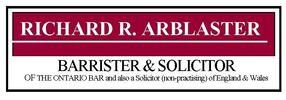With the publication in the Ontario Gazette April 6, 2024 edition the previously un-proclaimed provisions of the Build Ontario Act (Budget Measures), 2021, amending the Business Corporations Act to introduce the requirement of a new (internal) register of shareholder’s holding significant control of a corporation, have come into law, effective April 1, 2024. Despite the date the announcement is no joke. Attached is a sample register and accompanying record for annual update checks the contents of which meet the requirements of the new provision.
At trial an individual defendant was acquitted of sexual assault charges. On a crown the field. The appellate judge reversed the trial decision and found the defendant guilty. The court of appeal in turn reversed the appellate judges decision. The Court of Appeal criticized the appellate judges reasoning as a departure from the facts and a failure to engage the correct analysis needed to reach the conclusion that the trial judgment should be reversed. Reversals of trial judgments are in frequent but not rare. Likewise reversing an appeal judgment on appeal to a higher level of court is not a unique, but is in frequent. What is unusual is that the first appeal decision was made by a Judge of the Superior Court of Justice who, before the Ontario Court of Appeal heard the appeal to it, was appointed to a vacancy on the Supreme Court of Canada. The appeal was heard on a Wednesday and the decision released the following Wednesday.
Last month a new regulation under the Planning Act was published in the Ontario Gazette. Ontario regulation 73/23 imposes a new requirement on 29 Golden horseshoe municipalities (and the city of Ottawa) to deliver data on the number of official plan, zoning, site plan, minor variance, subdivision has severance, plans of condominium and other information on a quarterly basis. In addition, annual reports are required from the municipalities setting out a range of detailed data respecting growth and employment areas, transit station boundaries, and boundaries of settlement areas. Get ready for some central planning.
In the attempt to dampen rising house prices the government of Ontario imposed a 15% tax on the purchase of certain residential properties, Limited to the general “Golden horseshoe” area including, of course, Toronto and its immediate neighbours. Today the province and announce this tax was is increasing to 20%, effective immediately, and applies province wide. There are transitional provisions for purchases already made but not yet closed but otherwise being a nonresident, of a certain type, comes at a cost if acquiring one, or a handful of residences. The type that is not subject to the tax are those with the official status of Canadian citizens or permanent residents. With such qualifications, the fact that a person may functionally be a nonresident of Ontario is immaterial. With such a qualification there is no tax payable. Land transfer tax is a separate tax, and remains payable regardless of residency.
As a consequence of Ontario legislation (Schedule 2 to Build Ontario Act S.O. 2021, c. 40, assented to on December 9, 2021) as of January 1, 2023 all Ontario corporations must prepare and maintain a “register of individuals with significant control over the corporation”. Exceptions are made for offering corporations, corporations offering its securities to the public which are subject to provincial regulation, shares listed on designated stock exchanges, and wholly-owned subsidiaries of the foregoing. An outline of the changes and a sample register is provided here for downloading and review.
Ontario’s Divisional Court branch of the Superior Court of Justice released a decision on the week before Christmas striking down the provincial requirement that individuals seeking to be certified as teachers in Ontario must successfully pass a standardized math test to demonstrate their mathematics proficiency. The factual basis for the decision is that the evidence presented to the court “points to significant disparities in success rates of standardized testing based on race, including statistical evidence of racial disparities with respect to the [provinces Mathematics Proficiency Test]”. This violated the entitlement, under the Canadian Charter of Rights and Freedoms (section 15), of racialized teacher candidates to equality under the law without discrimination and, in particular, in this case, because of their race. The disproportionate effect on racialized teacher candidates was not, by the evidence, minimal and the option to retake the test does not answer the issue as “there is a cost to retaking the test in time and money for those [the teacher candidates] who are least likely to be able to afford this”. Although the court concluded that the Mathematical Proficiency Test furthered a pressing and substantial objective (the education of students) there were options to achieving the objective which had less impairment on teacher candidates charter rights. The decision can be appealed. The full text of the decision can be found at:
https://www.canlii.org/en/on/onscdc/doc/2021/2021onsc7386/2021onsc7386.html As the Canadian Thermal Windows (see December 7 post) case highlighted, anti-SLAPP legislation can introduce colossal perils to vainglorious plaintiffs. However, there is a flip side and contractors whose feathers have been undeservedly ruffled by their customer in a public way will be given a forum in the correct circumstances. In particular, where the defendant/ex-customer may be gaming the system or an ulterior purpose. ( Luc Crawford Design Inc., et al v. Mullowney et al., 2021 ONSC 7849 (CanLii))
A recent case demonstrates how small matters and get out of control and lead to exceptional consequences. A dissatisfied customer posted negative reviews on the Internet regarding a house construction job. The rankled contractor sued, claiming defamation. Threatened with an anti-SLAPP (strategic lawsuit against public participation) motion to have its action dismissed, the contractor sought to discontinue the action. When the customer/defendant demanded $35,000 in costs as the consequence of a discontinuance the contractor sought to reverse field. Too late. The motion went to a hearing and the judge dismissed the action on the basis that stifling public discussion trumped ruffled private feelings. The judge awarded costs in favour of the customer/defendant in the amount of $164,000! Since the costs order was the reimbursement of the customer’s actual costs of the action the only participants who are assuredly benefited were the lawyers. (Canadian Thermo Windows Inc. v. Seangio, 2021 ONSC 6555 (CanLii))
Where work is done on exclusive use common elements by the Corporation without first notifying the effected owners and giving them the opportunity to do the work first, cannot retroactively attempt to make the owners responsible for the cost of the repairs. Those costs are the corporations'.
(Beswick et al. v. York Region, 2020 ONSC 2785 (CanLii)) The effective date of the sending of written notice of a condo. Corporation’s intent to register a lien for common expense arrears was the date of mailing. Accordingly a notice dropped in the mail on day one can be the subject of the registration of a lien on day 11. The rules of civil procedure have no application to the determination of the effective date of service.
Carleton Condominium Corporation No. 476 v. Wong ONCA 2020 263 A condominium corporation whose declaration restricted each residential unit only for occupancy and use as a private, single family residence and for no other purpose and which also declared there were no restrictions on the minimum or maximum length of the lease of a residential unit acts reasonably in introducing a new rule which prohibited the occupation of the residential units for short-term, transient, hotel like use. Provided the use complies with the requirement of a private, single family residence, there is no restriction on the length of the lease. However transient our hotel lake uses are not consistent with this requirement.
Kapoor v. Toronto Standard Condominium Corporation No. 2450 2019 ONSC 3461 (CanLII) The Courts will apply the business judgment rule where the decision of a condominium board is challenged. The rule provides that as long as a director’s decision is found to of been within the range of reasonable choices that could’ve been made in weighing conflicting interests, the court will not go on to determine if the decision was a perfect one. As long as a board asked fairly and reasonably court will not second-guess its decision. These principles were applied to a case where condominium unit owners challenged a condominium rule which prohibited leases having terms of less than six months.
Kumar v TSCC No. 2492 2020 ONSC 956 (Canlii) Minutes of a board meeting must be written documents that record at least the date of the meeting, members present, proposition(s) or issues considered, and the decisions made. Where “meetings” constitute a series of discussions between board members, the totality of which amount to quorum, a written record should be created to reflect the discussions and decision made.
Turner v. Peel Condo. Corp. 42. See 2020 ONSC 738 (Canlii) Section 23 (2) of the Condominium Act requires a condominium corporation to give written notice of the general nature of any legal action contemplated by the corporation before commencing an action. Ontario’s Court of Appeal recently decided, reversing its own 1983 decision, that the failure to give such notice does not render the legal action a nullity. Such an omission is simply a procedural irregularity that can be cured.
See YRSC 1206 v 520 Steeles 2020 ONCA 63. Generally an action against the deceased person or their estate must be commenced within two years of the date of death. However, as Wilkinson v. The Estate of Linda Robinson 2020 ONSC 91 (Canlii) makes clear this does not apply to an action in respect of real property. In the latter case the 10 year limitation set out in the Real Property Limitation Act applies in an action claiming rights over such property may be commenced at any time within that 10 year window. This creates some clear problems for the administration of a person’s estate given the uncertainty as to whether a valid, unknown claim exists and may be subsequently exercised, leading to hesitancy on the part of executors/trustees in winding up the estate.
A recent case reminds us that the mediation and arbitration process set out in Ontario’s Condominium Act must be engaged before going to court, but only if the dispute is between one or more owners and the Condominium Corporation. If the dispute arises between a tenant and the Corporation because of the breach, for example, of a bylaw or rule, the interested parties can go directly to court to have the dispute resolved. This does not prevent interested parties, including a tenant, to volunteer to enter the mediation and arbitration process, whether as a precondition to a court action or as a final resolution.
See MTCC 933 v Lyn 2020 ONSC 196 (Canlii). |
||||||||||||||||||||||||||||||||||||||||||||||||
Proudly powered by Weebly

